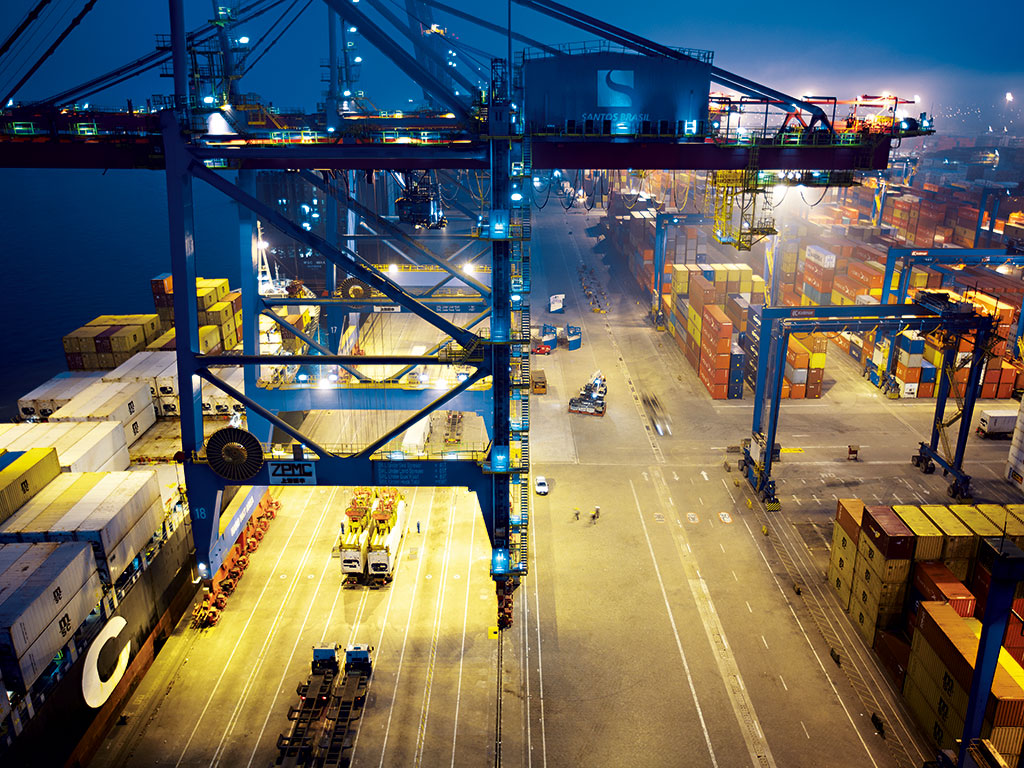Santos Brasil brings benefits from booming ports Brazil-wide
So far, 2014 has been a stellar year for logistics services. We speak to New Economy Award winner Santos Brasil about the surge in trade

This year’s improving economic prospects significantly boosted logistics and shipping after years of post-crisis drag. WTO forecasts have optimistically suggested a 4.7 percent increase for 2014
This year’s improving economic prospects have brought a growing tide of international trade to the world’s markets – particularly emerging ones such as Brazil – and significantly boosted logistics and shipping after years of post-crisis drag. That’s why Santos Brasil, a key provider of port and logistics services, has set its sights on developing innovative ways to increase overall productivity throughout the country.
With the global recovery in trade flows, exports and imports have improved worldwide, and WTO forecasts have optimistically suggested a 4.7 percent increase for 2014. Increased globalisation and the surge in international trade have prompted maritime transport companies to invest heavily in technology and innovation in order to accommodate growing demand. Major shipping companies are building bigger ships, such as Maersk’s Triple E model which, with its 400-metre length and ability to handle 18,000 twenty-foot equivalent units (TEU), is the largest in the world.
With the rapid increase in container ship size, container terminals around the world had to adapt – Antonio Carlos Sepúlveda, CEO of Santos Brasil
This has put pressure on port and logistics providers such as Santos Brasil to accommodate the new specifications in the maritime industry. As the operator of the largest container terminal in South America, Tecon Santos, the firm has invested roughly $880m in improving its operations. The container terminal, located on the left bank of the Port of Santos, covers 600,000m2 and has the capacity to handle two million TEU per year.
“With the rapid increase in container ship size, terminals around the world had to adapt,” says Antonio Carlos Sepúlveda, CEO of Santos Brasil. “We have invested a lot in equipment and infrastructure, but our continuous improvement in operational efficiency is coming from the strategic decision of also investing in innovation and state of the art technology for all facilities we run.”
Investing in the future
The first major investment was in container handling equipment, which included the purchase of super-post-Panamax quay cranes with large throughput capacity, as well as a large investment in the local workforce, who needed extensive training to operate the new machinery. To optimise and streamline the operations in the courtyard, the company has upgraded its management systems, which define the best routes within the terminal. This has the added benefit of reducing CO2 emissions. The firm has also provided sophisticated RTG cranes, which move and weigh each container, in accordance with Brazilian customs.
In addition, Santos Brasil recently automated Tecon Santos’ 10 gates, expediting the entry of approximately 3,000 trucks per day into the site. A key focus has been improving productivity, measured in moves per hour (MPH). Currently, Tecon Santos holds the record for the highest monthly average in Brazil at 95.02 MPH: more than a container and a half per minute. In January 2012, the terminal hit the incredible mark of 155.5 MPH on a single ship.
Logistics solutions
As part of an expansion into new sectors, the company also offers a “Port to Door” service, providing complete logistics solutions that take cargo from the client and carry it directly to its desired destination, with competitive pricing and efficiency. To achieve this, two bonded warehouses are located at the Port of Santos, as well as two distribution centres in the state of São Paulo (the most industrialised region of the country). The service makes the company responsible for all phases of a logistics operation, from receiving the cargo at the terminal to the storing and distributing of the goods, until they reach the hands of the end customer.
“Importers and exporters hire many logistics providers to transport their cargo, and pay dearly for it,” says Sepúlveda. “We decided to look after this market and shifted our marketing strategy. We went from being just an operator of containers to a company that provides port services and logistic services as well.”
Sepúlveda would not divulge further details about expansion plans, but said the development of ports, in the long run, will be a key factor to progressively boosting international trade, as well as the Brazilian and global economies













